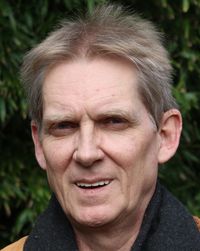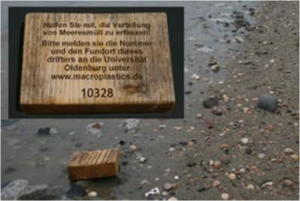Head of group

Prof. Dr. Jörg-Olaf Wolff
Location:
University of Oldenburg, Campus Wechloy
Room: W15 1-106
Carl-von-Ossietzky-Straße 9-11
26111 Oldenburg
Location/Approach
Physical Oceanography (Theory)
Prof. Dr. Jörg-Olaf Wolff passed away on August 20, 2023
Marine scientist Prof. Dr. Jörg-Olaf Wolff passed away unexpectedly and too early on August 20 at the age of 64. He had been a university lecturer for "Physical Oceanography" at the Institute of Chemistry and Biology of the Sea (ICBM) at the University of Oldenburg since 1999.
Jörg-Olaf Wolff studied oceanography, meteorology and physics at the University of Hamburg, where he received his PhD in physical oceanography in 1990. Until 1992, he worked as a research associate at the Max-Planck-Institute for Meteorology in Hamburg. From 1993 until his appointment at the University of Oldenburg, he conducted research at the Cooperative Research Centre for the Antarctic and Southern Ocean Environment in Hobart, Australia. From 2009 to 2012, Jörg-Olaf Wolff was "Adjunct Professor" (Associate Professor) at the University of Southern Queensland in Toowoomba. In 2016, he was again awarded this title by Shanghai Ocean University for his commitment to the exchange between with the University of Oldenburg.
For 20 years - from 2001 to 2021 - Jörg-Olaf Wolff was the responsible editor of the international scientific journal "Ocean Dynamics", which grew strongly in importance under his leadership. In this context, he coordinated for many years the awarding of the "Georg Wüst Prize", which is awarded every two years to eminent mid-career scientists. He was also one of the advisors of the book series "Springer Briefs in Earth Sciences" and was (vice) chairman of the German Society for Marine Research for several years starting in 2001. His research focused on numerical modelling of ocean currents, ocean-atmosphere interactions, and coastal oceanography. In this context, his interests included sea state modelling and sediment dynamics on structured and unstructured grids. He coordinated the research network "Macroplastics in the Southern North Sea" from 2016 to 2020, in which an interdisciplinary team investigated sources and distribution pathways of plastic waste and determined which strategies can best be used to reduce its input into the sea.
Jörg-Olaf Wolff was an outstanding scientist, a universally loved and appreciated university lecturer and colleague with unique communication skills and a sharp mind. We are losing a member of our research community who was highly valued both professionally and personally.
Research focus
Physical processes in the ocean occur on horizontal scales from millimetres to thousands of kilometres and on time scales from milliseconds to thousands of years and beyond. We are interested in the space/time scales relevant to the following processes, momentum fluxes in the ocean/atmosphere system, ocean/sea ice interaction and the hydrodynamics and morphodynamics in shelf and coastal areas.
Modern numerical models and diagnostics, as well as in-situ and remote sensing data from satellites allow us to understand the physical processes in different situations and to make predictions for realistic environmental situations. Numerical modelling of selected physical processes gives us the opportunity to develop a fundamental theoretical understanding of dynamics that allows us to use Earth system models with greater confidence to predict climate evolution in this century and beyond.
"Macroplastic North Sea"
MWK-Ausschreibung "Küsten- und Meeresforschung in Niedersachsen"
"The steadily increasing pollution of the oceans with long-lived plastic waste is a global problem with profound effects on marine ecosystems, especially also on Lower Saxony's coasts and island beaches. This project will investigate dispersal pathways and pollution areas of drifting macroplastics ("visible plastic parts") with computer simulations and determine the main regional sources of pollution. Monitoring, analysis and coastal observing systems, with the active involvement of citizens, will identify possible ways to plan abatement strategies."
Have you found a wood drifter?
For more information, click here: Project Macroplastics North Sea
|
|



![[Translate to English:]](/f/5/_processed_/3/2/csm_ICBM-Logo-transparent-_91fe1c6774.png)
